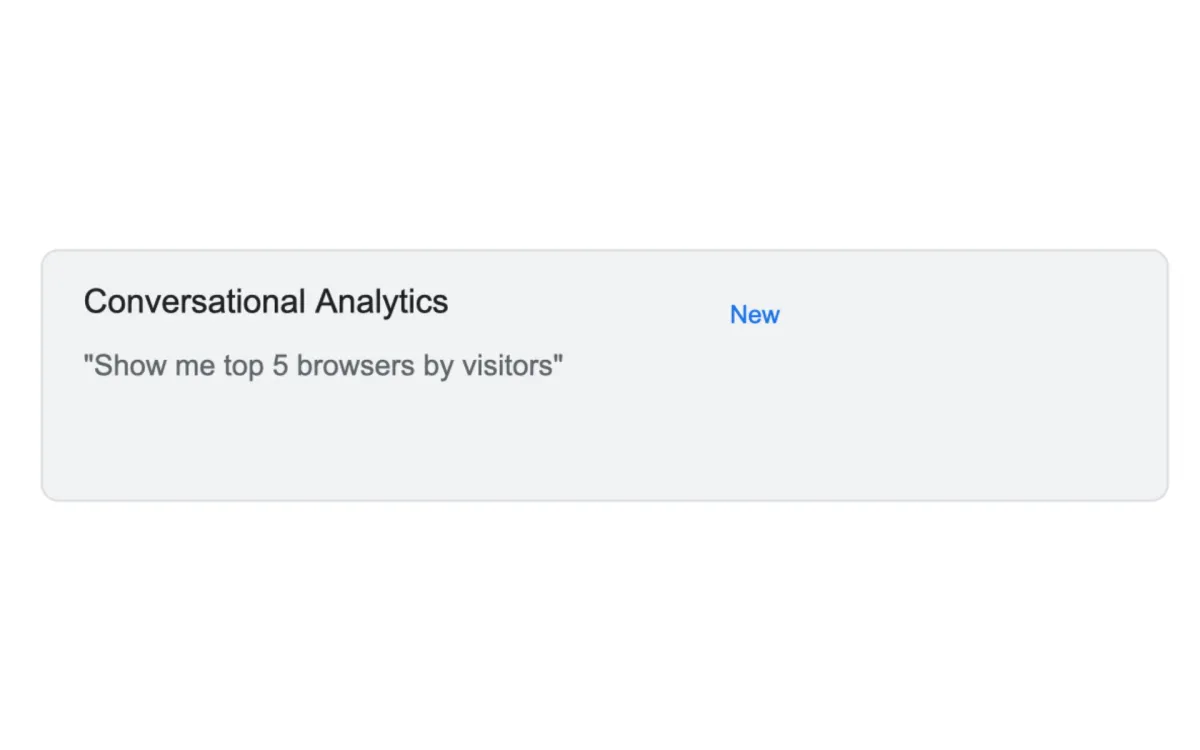
Two days ago, Google announced significant updates to Looker Studio, introducing Conversational Analytics powered by Gemini and several data visualization enhancements. According to the official release notes from December 5, 2024, these changes mark a substantial advancement in making data analytics more accessible to users without extensive technical expertise.
The introduction of Conversational Analytics, which operates in Public Preview, enables users to query data using natural language rather than traditional structured query formats. According to Google's documentation, this feature requires users to have a Looker Studio Pro subscription and administrator enablement through specified protocols.
The system demonstrates particular strength in handling specific types of queries. According to the technical specifications, Conversational Analytics excels at analyzing metric trends over time, breaking down metrics by dimension, identifying unique dimensional values, and determining top dimension values by metric. However, the system currently does not support more complex analyses such as period-over-period comparisons or predictive forecasting.
In parallel with the natural language capabilities, Looker Studio has implemented automatic chart title generation. The system now analyzes both the chart type and utilized fields to create contextually relevant titles, though users retain the ability to customize these through manual input.
The platform's data visualization capabilities have expanded through the integration of new Search Ads 360 connector fields. Marketing analysts can now access additional metrics including conversion tracking by conversion time, comprehensive conversion rates, and cost metrics related to client account conversions. The system also incorporates Google Ads Auction-time bidding data and currency code information.
For enterprise users, significant changes have occurred in the filtering system. According to the release documentation, report editors can now grant viewers comprehensive access to all applied filters, including those viewers cannot modify. This enhancement addresses a long-standing limitation in collaborative data analysis environments.
The platform has also introduced filter value suggestions, a feature that operates across all data connectors. When defining filters on charts, pages, or reports using Equal to (=) or In conditions, report editors receive suggestions drawn directly from the underlying data. This functionality can be disabled during filter creation if desired.
In the Looker connector domain, the update brings enhanced filtering capabilities. Filter-only fields can now function as report controls and quick filters. The system also displays suggestions for filter values based on the data source's LookML suggest_dimension and suggest_explore definitions when utilizing Equal to (=) and In conditions.
The release includes substantial updates to partner connections, with multiple new connectors added to the Looker Studio Connector Gallery. These additions span various data sources, including social media platforms, e-commerce systems, and specialized analytics tools. Notable new integrations include Oktopost, Instagram Insights by Detrics, and MongoDB AppiWorks by Jivrus Technologies.
Technical improvements extend to the platform's visualization capabilities with the introduction of text wrapping for pivot table row headers. Users can now enable text wrapping through the Style tab's Wrap text option, enhancing the readability of complex data presentations.
From a data management perspective, the update introduces new cart conversion fields in the New Search Ads 360 connector. These fields encompass detailed metrics such as orders, average cart size, average order value, and various cost of goods sold calculations across different sales categories.
Security and compliance features have not been overlooked. The system maintains strict data handling protocols, particularly in the Conversational Analytics feature. According to Google's documentation, Gemini in Looker does not utilize prompts or responses as training data for its model, addressing potential data privacy concerns.
These updates reflect a significant shift toward making data analytics more accessible while maintaining robust technical capabilities. The changes demonstrate Google's focus on balancing user accessibility with advanced functionality in the business intelligence sector.

